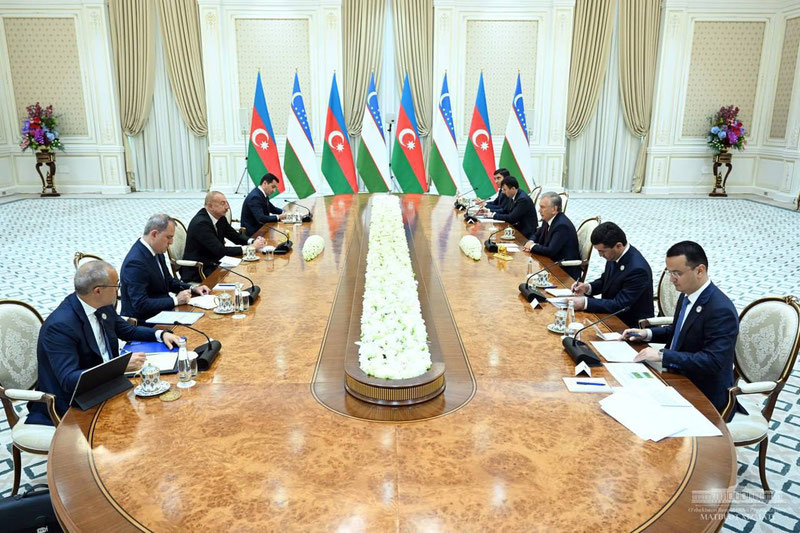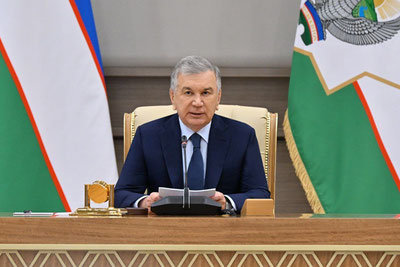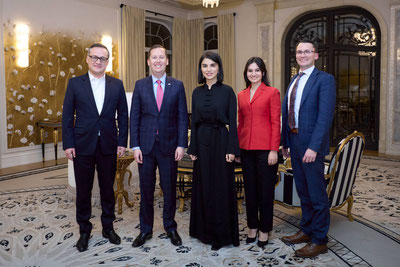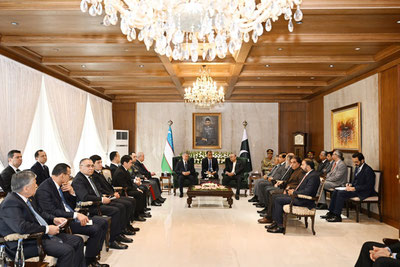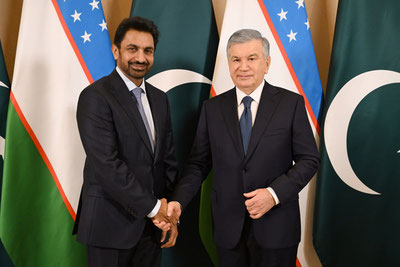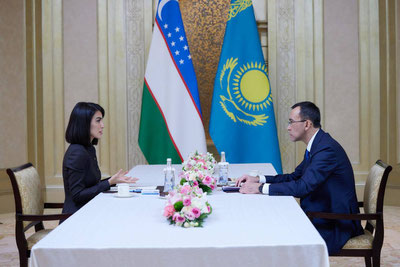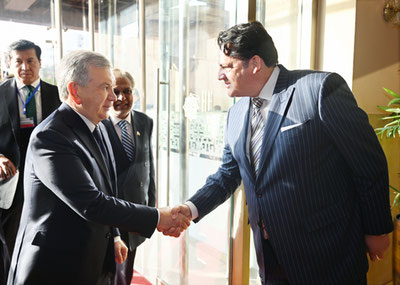The President of the Republic of Uzbekistan Shavkat Mirziyoyev and the President of the Republic of Azerbaijan Ilham Aliyev held a meeting in a narrow format and the first session of the Interstate Higher Council at the Kuksaroy residence. The Presidential press service reported this.
 The issues of further deepening and expanding strategic partnership and multifaceted cooperation relations between Uzbekistan and Azerbaijan were discussed.
The issues of further deepening and expanding strategic partnership and multifaceted cooperation relations between Uzbekistan and Azerbaijan were discussed.
The head of our state specifically emphasized that the current state visit of the President of the Republic of Azerbaijan is a historic event.
- "Today we are signing the Alliance Relations Agreement. Over several years, we have successfully raised Uzbekistan-Azerbaijan relations to the highest level of interstate cooperation," - said Shavkat Mirziyoyev.
 It was noted with satisfaction that the first session of the Interstate Higher Council, which should become an effective mechanism for promoting multifaceted cooperation and enriching it with specific content, is being held.
It was noted with satisfaction that the first session of the Interstate Higher Council, which should become an effective mechanism for promoting multifaceted cooperation and enriching it with specific content, is being held.
The leaders emphasized the rapid development of bilateral relations. Close connections have been established between parliaments, governments, sectoral agencies, and regions. Meetings of the intergovernmental commission and Business Council, forums and exhibitions, numerous cultural events are regularly held. Cooperation between business communities is expanding.
 Within the framework of the visit, there will be a meeting between the Presidents and representatives of leading companies of the two countries, and new cooperation projects will be launched.
Within the framework of the visit, there will be a meeting between the Presidents and representatives of leading companies of the two countries, and new cooperation projects will be launched.
As highlighted, next year will mark the 30th anniversary of the establishment of diplomatic relations between Uzbekistan and Azerbaijan.
The head of our state proposed to prepare a program of events and a plan for Interdepartmental Dialogue and Exchanges intended for one year to widely celebrate this auspicious date.
In addition, it was agreed to declare the next year as the Year of Economic Cooperation between Uzbekistan and Azerbaijan and to adopt a comprehensive program covering 20 priority areas.
 Tasks have been set to multiply the volume of trade exchange and move to a new stage of industrial cooperation, including implementing projects in third countries.
Tasks have been set to multiply the volume of trade exchange and move to a new stage of industrial cooperation, including implementing projects in third countries.
The results of the business forum that took place the day before were noted with satisfaction: a portfolio of promising projects worth more than 2 billion dollars was formed. These are cooperation projects in the fields of energy, chemistry, mining, textiles, agriculture, urban planning, and others.
In this context, the effectiveness of the Uzbekistan-Azerbaijan Investment Company as a support tool for such projects was noted.
The necessity of strengthening connectivity between the two countries through the implementation of transport-communication, energy, and other infrastructure projects, including on a multilateral basis, was noted.
The parties agreed to increase the number of flights, simplify the procedures for land and air transport as much as possible, and introduce digital solutions.
The importance of activating interregional relations was noted. An agreement was reached to adopt a separate Interregional Cooperation Plan aimed at 2025, a partnership program for developing the industrial potential and infrastructure of the regions of the two countries, and to hold the next Regions Forum in the city of Kokand.
 The state leaders agreed to continue active exchanges in the fields of culture and arts, education, healthcare, youth and information policy, and sports.
The state leaders agreed to continue active exchanges in the fields of culture and arts, education, healthcare, youth and information policy, and sports.
It was noted with satisfaction that the famous culture figures Farrukh Zakirov and Polad Bulbuloglu were awarded the title of "People's Artists" of our countries by the decrees of the Presidents.
The head of our state proposed to establish a mechanism for regular meetings of the rectors of the leading universities of the two countries, to hold a joint media forum.
The prospects of building tourism and business complexes in our capitals were discussed with the aim of increasing the flow of tourists, humanitarian and business exchanges.
The importance of implementing joint projects to support bilateral relations from an information-analytical perspective, deeply analyze and reveal the potential for cooperation was emphasized.
The state leaders exchanged views on the international and regional agenda, discussed issues of continuing active dialogue and mutual support within the framework of multilateral structures.
At the end of the meeting, it was decided to adopt a "roadmap" for the timely and high-quality implementation of the agreements reached.
